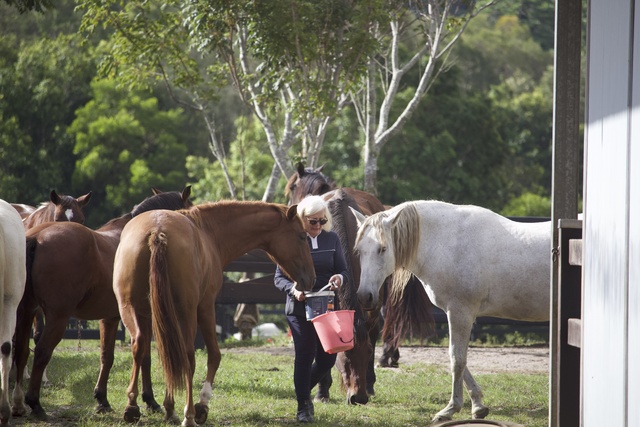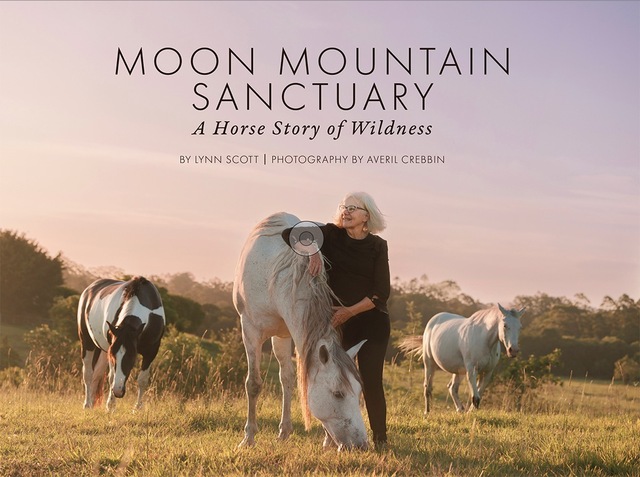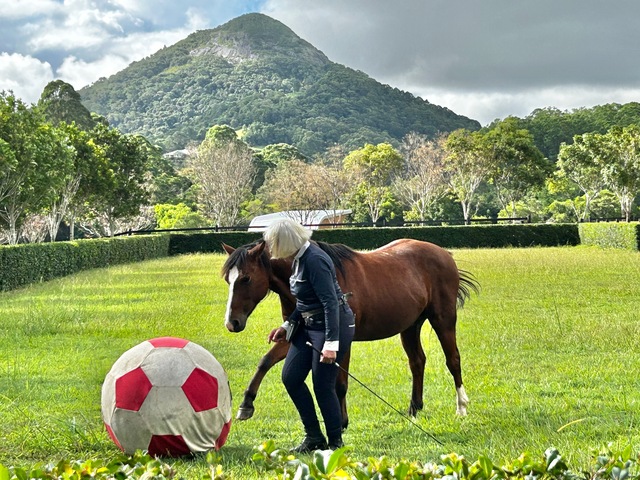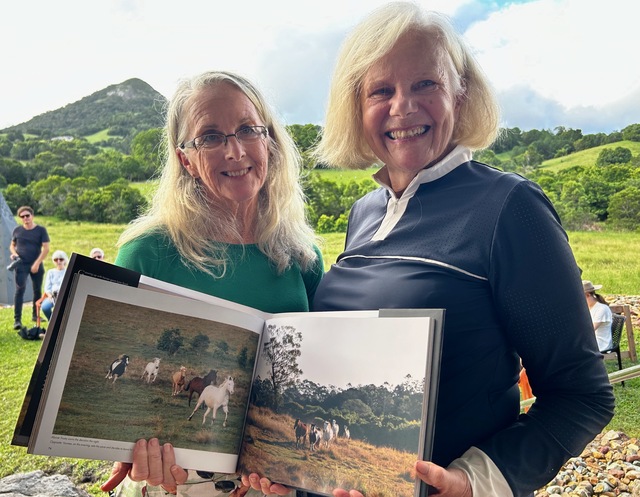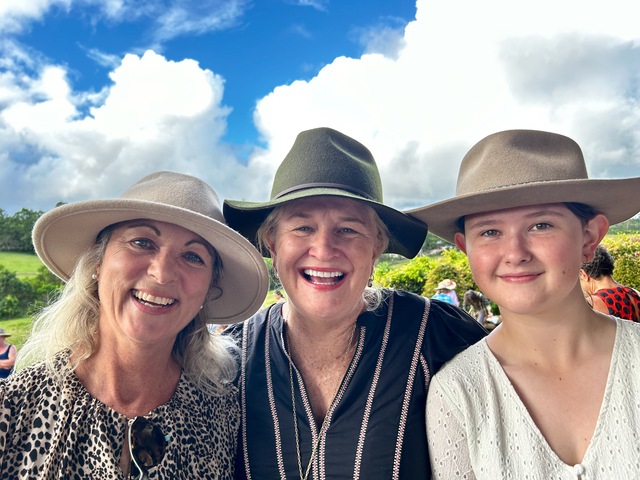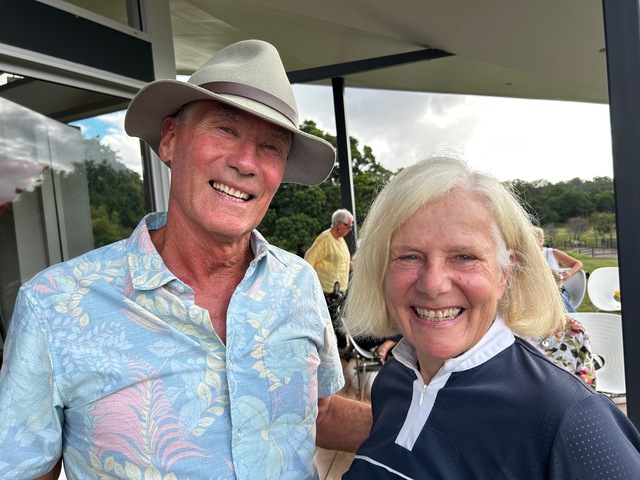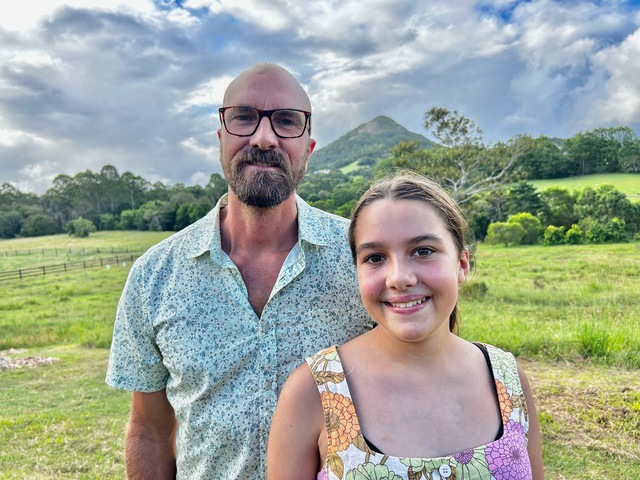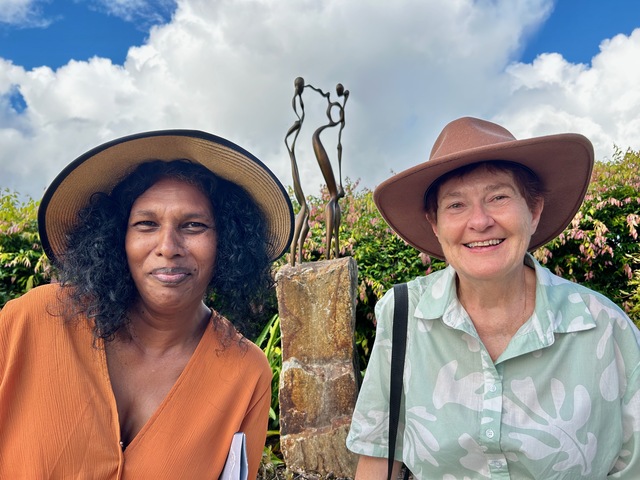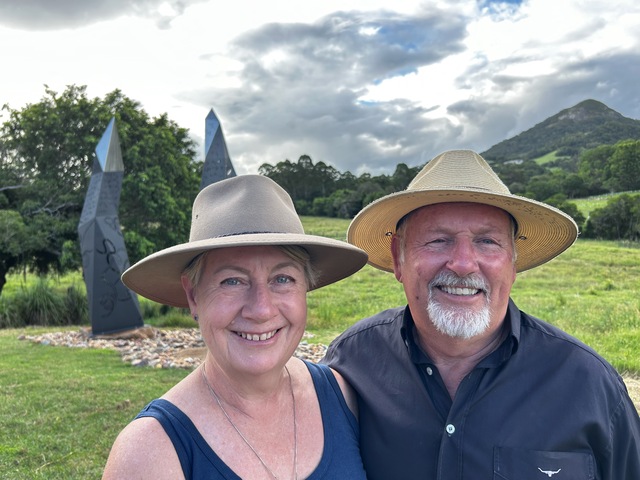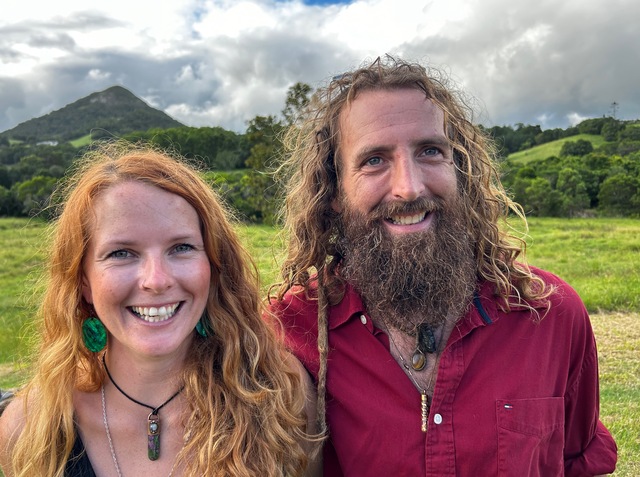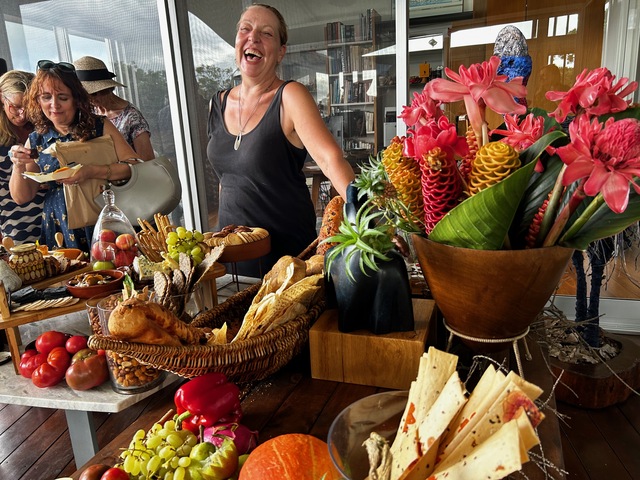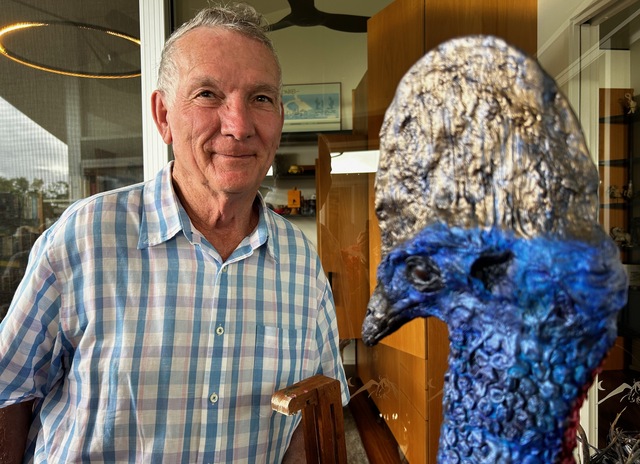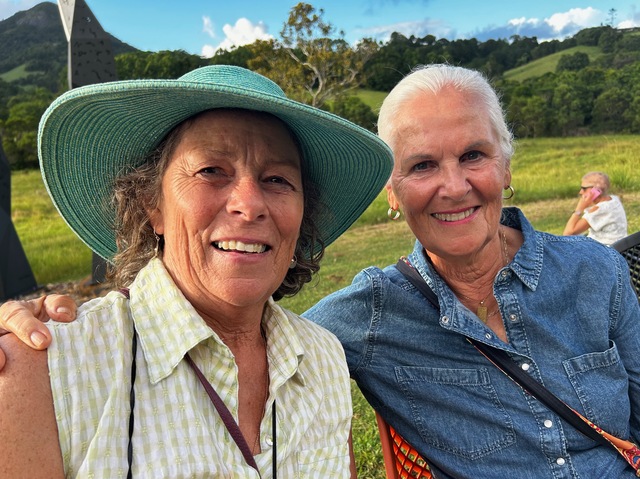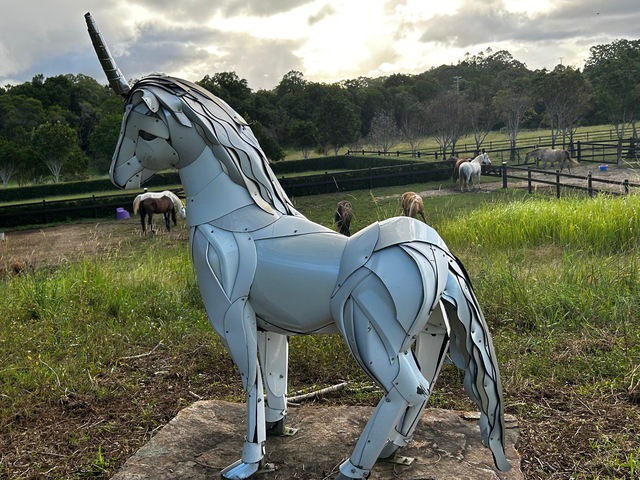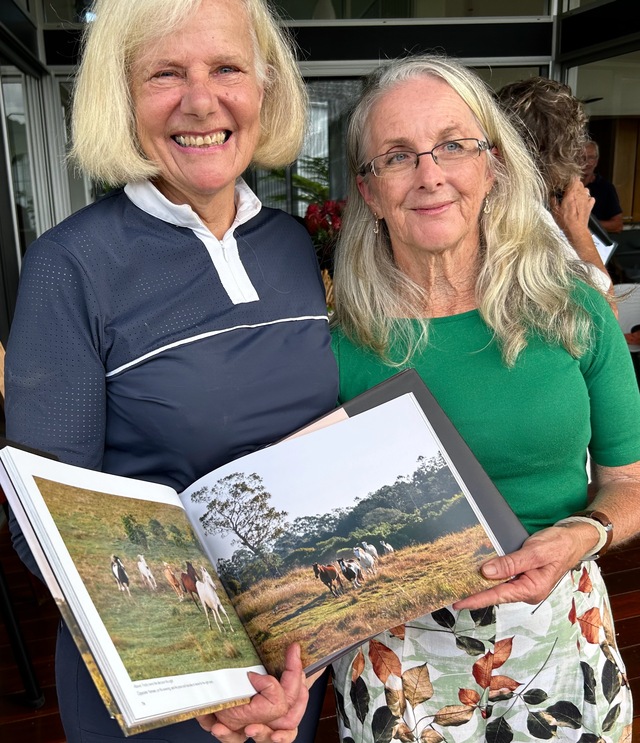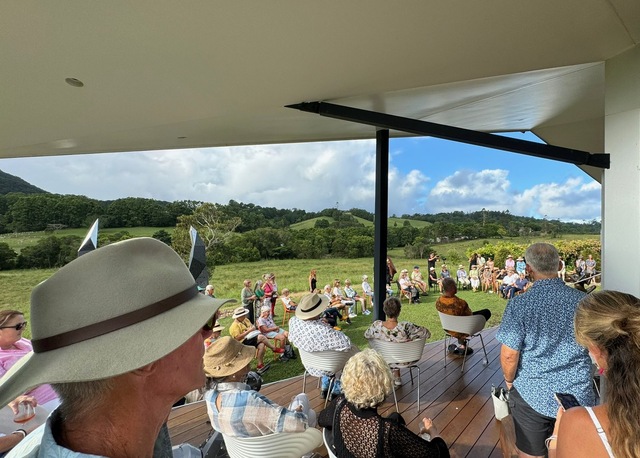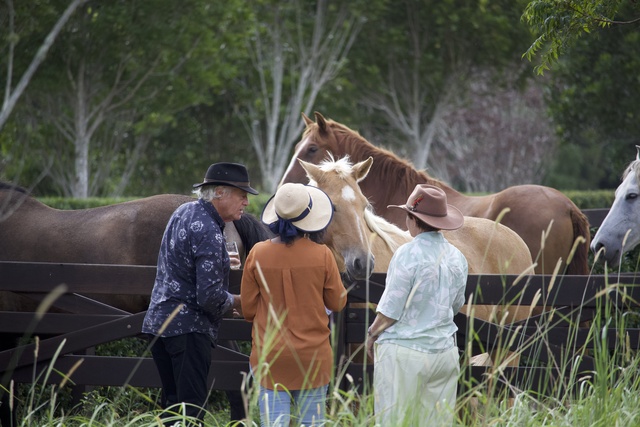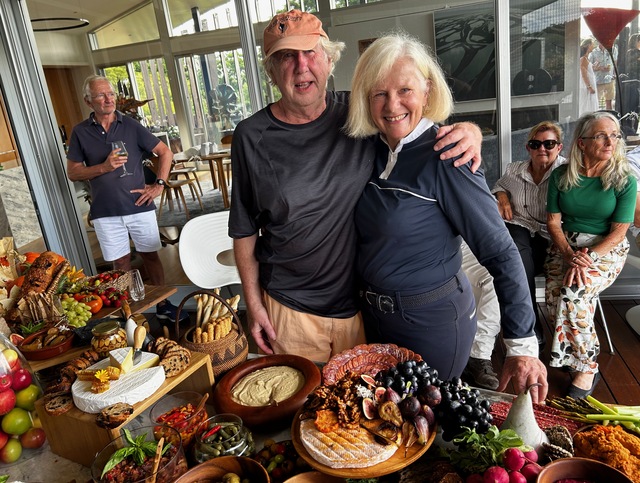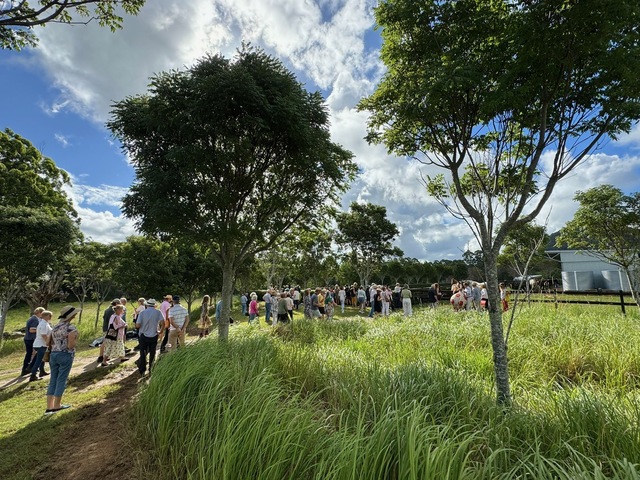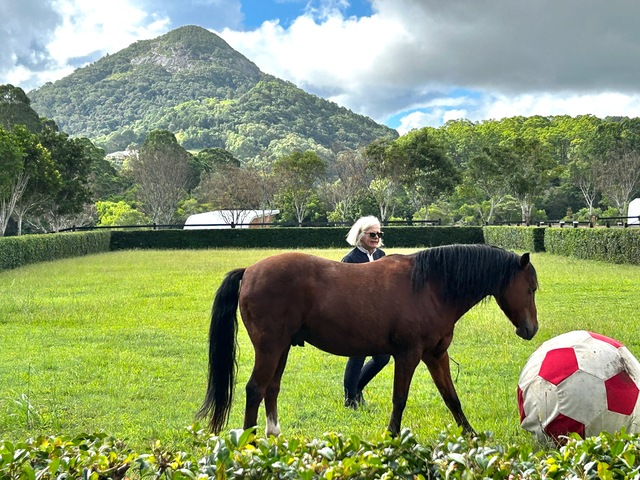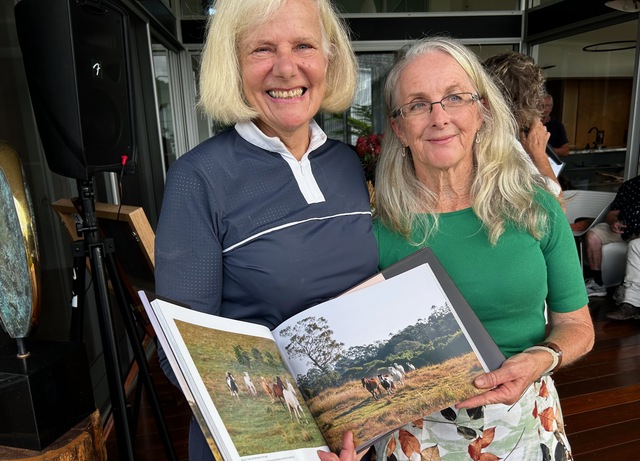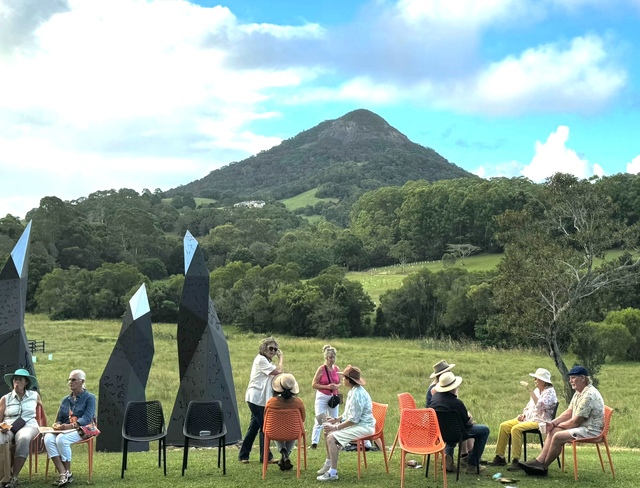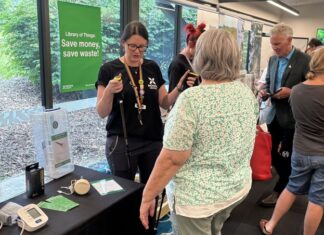Lynn Scott had a connection with horses when she was a little girl.
The nature of that connection, she now believes, wasn’t right – but that connection has led her to where she is today.
Speaking at the launch of her book, Moon Mountain Sanctuary: A Horse Story of Wildness, Lynn said there was a huge movement worldwide questioning the treatment of horses.
“I was taught as a child you have to show a horse who is boss, that horses were dangerous. I have learned we don’t need to do this.
“Today, I have a relationship with 13 wild horses and it’s just wonderful.
“I’ve spent 20 years with my brumbies – they can teach me about how they live.”
The book is the result of Lynn’s close relationship with the horses.
Moon Mountain Sanctuary has been developed by Lynn and husband Ron at Eumundi, and is an example of how a harmonious existence can be developed between humans and animals in a wild landscape.
The herd freely roams across the 25ha property, with Mount Cooroy as a backdrop.
Lynn had a career in geography, environmental studies and related fields, as well as publishing books, before they settled at Eumundi.
Through a close collaboration with photographer Averil Crebbin, the book captures the essence of the Moon Mountain herd.
Lynn said no dream was every fulfilled unless you had support and encouragement.
“Dreams need to be shared and nurtured. Thank you to my husband Ron, who found this property, to Averil who captured the images and to everyone who helped support and encourage this project.”
The launch, at their property in Eumundi, highlighted how horses could relearn the wild experience. Yet it also showed how lessons learned from wild horses, and wild animals such as wolves and gorillas, could teach humans about interaction.
When Ron and Lynn arrived at Moon Mountain from their careers in design and education, there was not a fence on the property.
Today, the only horses in specially built yards are the mares with foals in order to keep them safe.
When the foals are weaned they’re released into the herd.
“I began to see patterns of behaviour emerging that I hadn’t been taught before,” Lynn said. “There was no boss horse, no lead mare, no aggression or kicking or biting.
“I wondered what was going on. There was incredible harmony.
“The life horses lead in a domestic situation is not the life horses lead in the wild.
“You have to ask if we are managing our horses in the way we should be?
“My brumbies have helped the domestic horses rewild.
“I’d watch the interaction of the herd. Averil would capture the images.
“Harmony is not aggression. It’s the role of the herd to teach the foal manners.”
“We spent 12 months photographing and observing the herd. All the horses had beautiful personalities – one day one would be the main horse and another day it would be another one.
“Relationships are changing all the time.”
It became clear to Lynn that the hidden life of horses was emerging.
There were patterns but those patterns were not fitting into what Lynn had been led to believe.
“It made no sense to my horse world. Yet the patterns didn’t change and had no resemblance to what I thought horsemanship was.
“Eventually I ended up on the door step of ethologists such as Jane Goodall and Lucy Rees.
“Suddenly my herd’s behaviour made sense. Wild horse behaviour is not the same as domesticated horses.”
Jane Goodall is considered the world’s foremost expert on chimpanzees, having spent 60 years studying the social and family interactions of wild chimpanzees.
Writer, ethologist and horse trainer, Lucy Rees has travelled and worked in many countries and equestrian disciplines discovering the easiest, most universally applicable and successful ways of understanding and working with horses.
As Lucy Rees has said: “To understand an animal’s nature you have to see it in its natural state.”
Horse ethologists are advocates of change, Lynn continued.
“They want to spread the word on how to improve the life of horses.”
As a result of her interest in the subject, Lynn has been invited to join this small group of scientists in the UK and in Australia.
“This is the key to a deep and meaningful connection with your horse. It’s everything I wanted as a young girl.
“If you use wild horse rituals then life can change for domestic horses. But first you must know what are the rituals and then how we can use them in our life with horses.
“Many domestic horses have forgotten their wildness, and they do not know how to behave as a horse within a herd.
“Wild herds maintain a very structured social organisation: Harmony, synchronisation and behaviours that are essential for survival.
“However, because of the way we manage horses we don’t allow them to have social interaction, and the freedom to move.
“We separate them into small yards.
“Here, they have complete freedom to roam and the brumbies have taught the domestic horses how to interact.
“You don’t need to have wild horses to teach the domestics. You just need to know the principles of social organisation.
“The book describes and illustrates wild horse social and emotional rituals and organisation. You can apply these to your own horses or horse.
“It does mean you may have to let go of many of the horse myths that dictate horses lives with humans.”
Knowing how horses behave is important in order for it to be replicated in today’s world and not maintain a management technique learned with the industrial revolution in the 17th century.
That saw a shift in society from an agricultural economy to a manufacturing economy. Horses were were no longer kept out in the paddock but in stables where they had hard feed and not grass.
“Horsepower is called horsepower for a reason,” Lynn said. “The horses were kept in the city to be near the people they worked for.
“We have stuck with that for centuries but are realising that’s not how horses behave. It’s time to have another look at it.”
Lynn is thrilled with the book, which is self-published and available in limited numbers.
“The photos are the key.
“Horses have always been a part of my life. On retirement I have been able to realise the dream.”
Lynn’s journey shows that what we are taught earlier in life can, and should, be challenged.
It’s about being willing to consider things from a different perspective.
If we see something that differs from our existing beliefs, it might be an opportunity to consider the possibilities and what changes can be made.

